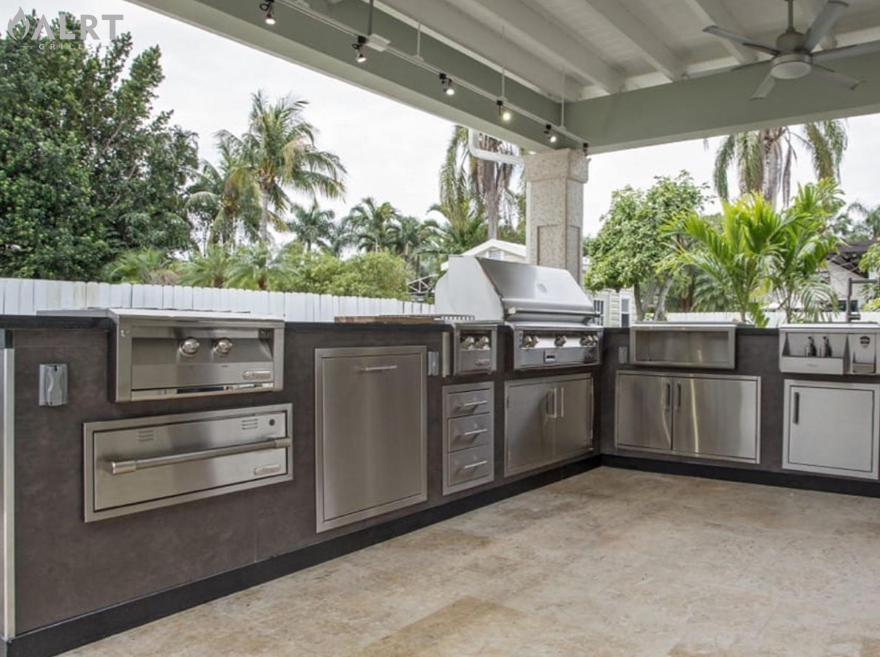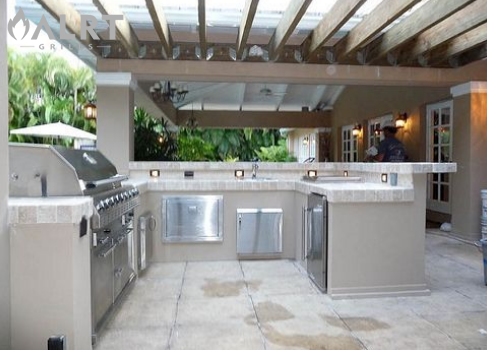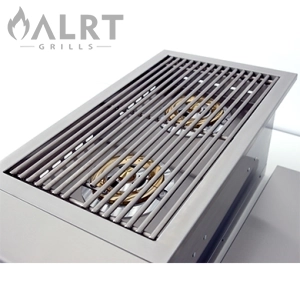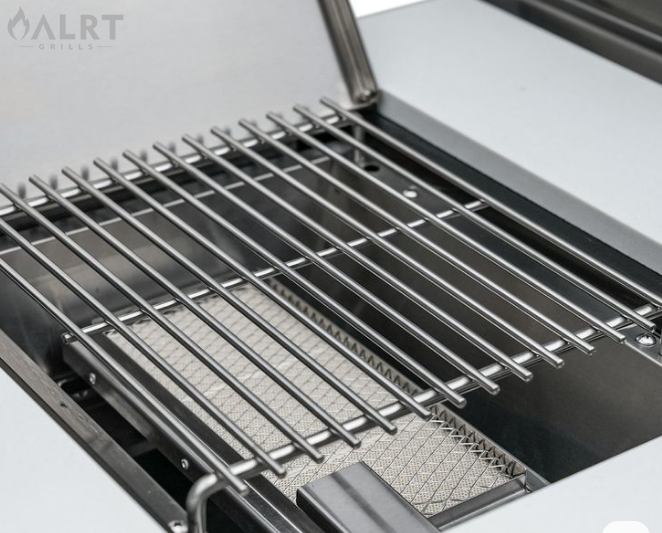The Question of Fuel Compatibility: Can Natural Gas Power a Propane Grill?
The question of fuel compatibility—whether natural gas can power a propane grill—is critical for homeowners and BBQ islands manufacturers alike. As a trusted outdoor kitchen grill supplier and BBQ island wholesale factory, we’ll explore the technical, safety, and design considerations of fuel conversion. Whether you’re integrating grills into outdoor kitchen islands or sourcing wholesale BBQ islands, this guide clarifies the process and pitfalls.
Understanding Propane vs. Natural Gas Systems
Fuel Pressure and Burner Design
Propane Grills: Operate at 10–11 inches of water column (WC) pressure, requiring smaller orifice jets to maintain flame intensity.
Natural Gas Grills: Use 3.5–4 inches WC pressure with larger orifices for lower-pressure gas flow.
Key Differences
Energy Density: Propane delivers 2,520 BTUs per cubic foot vs. natural gas at 1,030 BTUs per cubic foot.
Regulator Compatibility: Propane regulators are preset for high pressure and cannot be adjusted for natural gas.
Is Conversion Possible? Technical Feasibility
Yes, But With Caveats
Required Modifications:
Orifice Jet Replacement: Swap propane jets (e.g., 0.082" diameter) for natural gas jets (0.125"+) to accommodate lower pressure.
Regulator Adjustment: Install a natural gas regulator (e.g., Weber 7100 LP to NG Kit).
Hose and Valve Checks: Ensure connectors are rated for natural gas use.
Manufacturer Restrictions
Many brands (e.g., Napoleon, Weber) void warranties if grills are converted without certified kits. Always check user manuals.
Step-by-Step Conversion Guide
Purchase a Conversion Kit
Example: Char-Broil Universal Natural Gas Conversion Kit ($50–100) includes jets, regulator, and instructions.
Replace Orifice Jets
Use a wrench to remove propane jets from burners and install natural gas jets.
Adjust Regulator and Test
Attach a natural gas regulator and test for leaks with soapy water.
Integration with Outdoor Kitchen Islands
Fixed vs. Modular Designs
Fixed Outdoor Kitchen Islands: Ideal for permanent natural gas lines. Use stainless steel flex lines to connect the grill securely.
Modular BBQ Islands: Propane tanks offer flexibility but limit fuel efficiency. Consider hybrid systems for wholesale BBQ islands projects.
Safety Compliance
Certification: Ensure conversions meet ANSI Z21.58 standards for outdoor gas appliances.
Professional Installation: Recommended for built-in outdoor kitchen grill setups to avoid gas leaks.
Commercial Considerations for Wholesale Buyers
Bulk Conversion Kits
As a BBQ island wholesale factory, we offer bulk conversion kits (e.g., 100+ units) at 15–20% discounts for large projects.
Custom Fuel Solutions
Design dual-fuel outdoor BBQ grill systems for resorts or rental properties, allowing users to switch between propane and natural gas.

FAQ
Q1: Is converting a propane grill to natural gas safe?
Yes, if done with certified kits and professional oversight. Always pressure-test connections.
Q2: Can I revert to propane after conversion?
Yes, by reinstalling propane jets and regulators.
Q3: Will conversion affect heating performance?
Natural gas may slightly reduce max temperature due to lower BTU density.
Q4: Are conversion kits universal?
No. Kits are brand-specific (e.g., Weber, Char-Broil). Verify compatibility before purchase.
Q5: Can I connect a converted grill to my home’s natural gas line?
Yes, but hire a licensed plumber to tap into the main line safely.
Conclusion
Converting a propane grill to natural gas is feasible but requires precision. For homeowners building outdoor kitchen islands, natural gas offers long-term cost savings. BBQ islands manufacturers and BBQ island wholesale buyers should prioritize certified kits and professional installations to ensure safety and compliance. Explore our range of convertible outdoor kitchen grills designed for seamless fuel adaptation.

 English
English Italian
Italian Russian
Russian German
German Arabic
Arabic Spanish
Spanish





